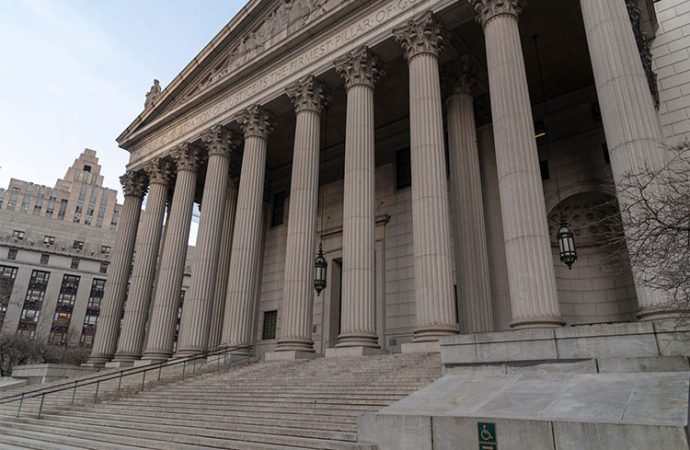Author Recent Posts Wajeeha Ashfaq Latest posts by Wajeeha Ashfaq (see all) Violations of International law by Israel in the ongoing conflict – November 2, 2023 Can BRICS replace G7 as a new international coalition? – September 26, 2023 Russia-Ukraine war poses threat to global food and energy security – September 15, 2023
The review of the history and transparency of interim governments in Pakistan renders them an unsatisfactory solution for the task at hand. The incumbent administration’s modification to the Election Act, 2017, triggered a debate over the powers of interim government. One of the modifications authorized the caretaker administration to take decisions on “existing bilateral, multilateral, and ongoing projects” already signed with international institutions such as the World Bank and the International Monetary Fund (IMF). The proposal was introduced in parliament by Prime Minister Shehbaz Sharif, provoking a backlash from both allies (Pakistan’s People’s Party) and opponents. However, the government negotiated an agreement with its partners, and the bill was enacted on July 26, just a few days before the setting up of a new Interim government.
The bill has been proposed and passed, keeping in view the current economic instability. Opposition leaders, on the other hand, have called it a suspicious act that would cast doubt on the outcome of the next elections. It has also been called off as a ruse to further prolong the elections. The atmosphere, however, is uncertain, necessitating a reconsideration of the aim of an interim government. An interim administration is formed to ensure that the elections are free and fair, without the involvement of the previous government, for a tenure of 60 to 90 days. Its responsibilities, as per the Election Act 2017, include running day-to-day activities without making major decisions or signing contracts that aren’t urgently needed because subsequent administration may not want to uphold them. Only a few countries throughout the world have embraced this approach, and Pakistan is the only one that has stuck with it for so long. Bangladesh implemented this system in the 1990s but abandoned it in 2011 due to its failure.
Pakistan did not have an interim government after independence until the 1990s, when Ghulam Mustafa Jatoi was elected as the first Interim Prime Minister. The underlying premise for the decision was the 1977 elections that brought Z.A Bhutto to office, and the results were too contentious to spark political opposition, eventually resulting to the imposition of second Martial Law. Following the restoration of democracy, there was a strong desire for the transparent organization of free and fair elections, which led to this decision. However, the interim government began trials and indictments against the PPP and was accused of using state apparatus to sway elections in favor of an anti-PPP party.
Pakistan’s succeeding interim governments were also ineffective, with several problems and cross-allegations surrounding the nomination of interim governments and the use of their powers, particularly until 2012. The 20th amendment to the constitution established conditions for selecting an interim administration. According to Article 224(A), the Interim Prime Minister must be chosen by consent of the government and the opposition leader. If they are unable to achieve an agreement, the duty should be delegated to a committee. If the committee fails to reach an agreement, the Election Commission is directed to make a decision. Similarly, clause (B) states that “Members of the care-taker Cabinets including the care-taker Prime Minister and the care-taker Chief Minister and their immediate family members shall not be eligible to contest the immediately following elections to such Assemblies”.
The amendment offered a small ray of hope for impartial interim governments and elections. However, the recent modification has once again aroused concerns about its transparency. As the Opposition leader is also a dissenting PTI member who supported Khan’s no-confidence motion, it is quite likely that the interim Prime Minister will have a bias toward the ruling party. Such conditions, along with the inclination of caretaker governments toward certain parties, render their existence nearly meaningless. Instead, it just delays the upcoming elections by over two months, which is costly to a country like Pakistan, which is already struggling with its economy.
This suggests that electing neutral care taker government is almost impossible and the questions on transparency of elections still arise. Thus, the electoral commission should begin election preparations before the current government’s term ends, instead. At the mean-time, the current government and their policies continue without getting involved with the process of elections. Why do we need an interim government that is essentially (most of the time) a puppet working on behalf of others, when the electoral commission has jurisdiction over everything and all the authorities for organizing elections and the care taker government can only assist (that too if asked by the EC)? Why waste a two-month period that may be critical for establishing a new and elected government and launching vital policy decisions? As seen by the current government’s statements, the interim government is being used to further delay elections, which is a constitutional violation within itself.
In a nutshell, either the Interim government must be made truly transparent and neutral, and used only to carry out the mission that it was created to do, or it must be abolished entirely. Considering our political polarization and our politicians’ unwillingness to sit together and make joint decisions on any issue, eliminating this process appears to be a better solution.
- Violations of International law by Israel in the ongoing conflict - November 2, 2023
- Can BRICS replace G7 as a new international coalition? - September 26, 2023
- Russia-Ukraine war poses threat to global food and energy security - September 15, 2023












Leave a Comment
Your email address will not be published. Required fields are marked with *